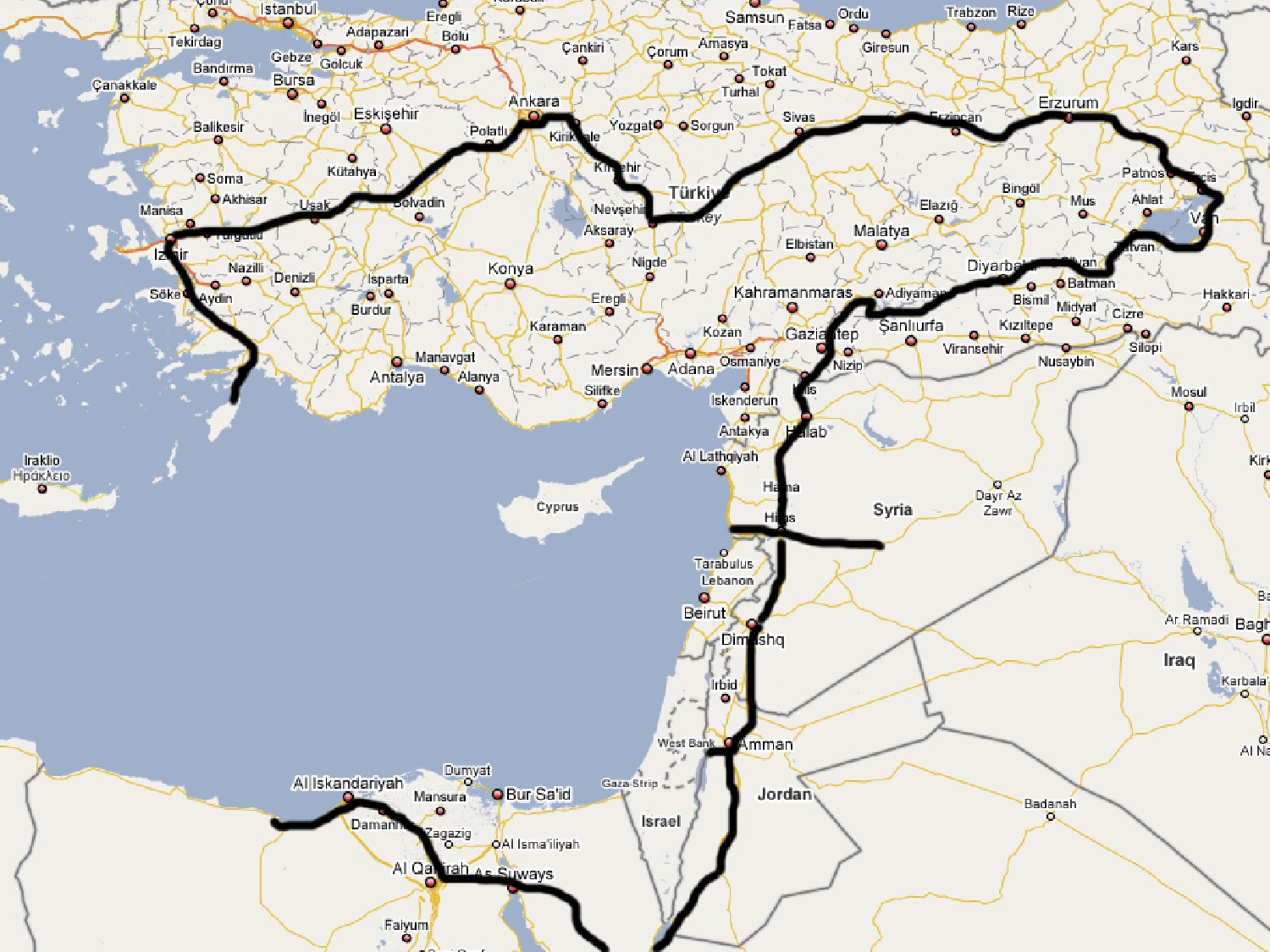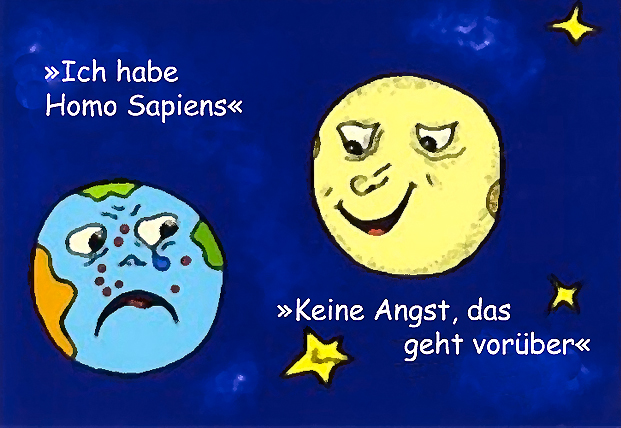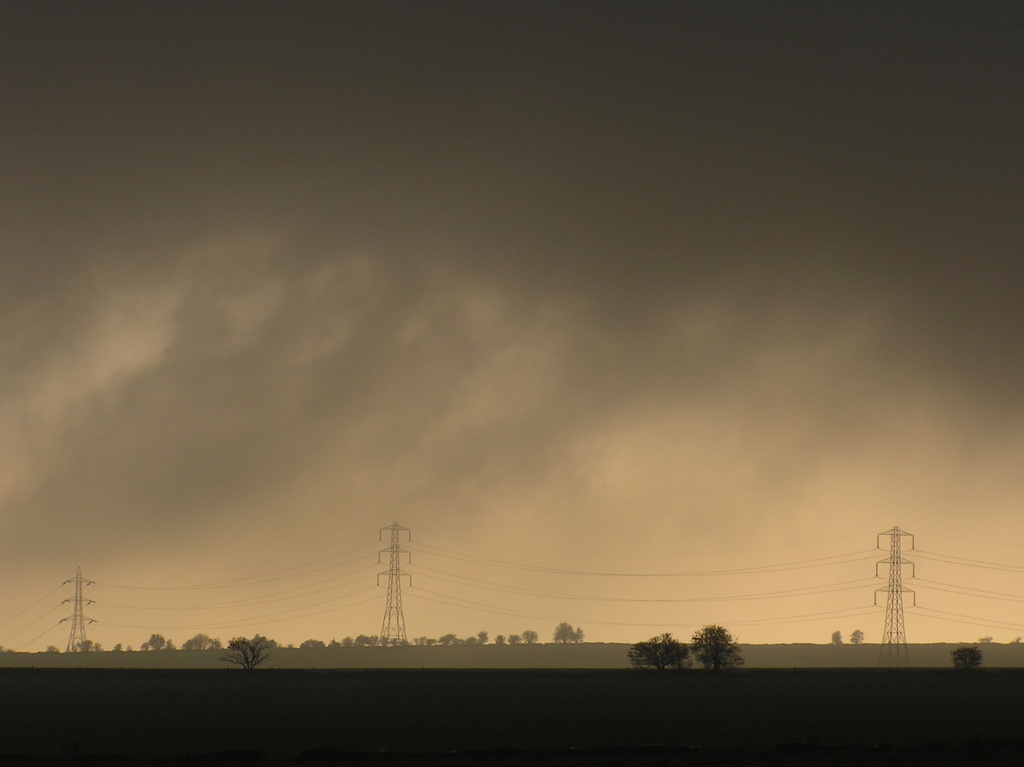Click here and press the right key for the next slide (or swipe left)
also ...
Press the left key to go backwards (or swipe right)
Press n to toggle whether notes are shown (or add '?notes' to the url before the #)
Press m or double tap to slide thumbnails (menu)
Press ? at any time to show the keyboard shortcuts

‘there are these objects out there. Here is the mind/brain, carrying on its thinking/computing. How do the thinker’s symbols ... get into a unique correspondence with objects and sets out there?’
\citep[p.~51]{Putnam:1981sw}
Putnam, 1981 p. 51
‘the implication of the thinking situation is of some ‘correspondence’ ... the problem of its nature and valid determination remains the central question of any theory of thinking’
\citep[p.~200]{Dewey:1907ka}
Dewey, 1907 p. 200
‘That truth is the correspondence of a representation with its object is, as Kant says, merely the nominal definition of it. ... But what does this correspondence or reference of the sign, to its object, consist in?’
\citep[p.~390/5.553]{Peirce:1906gu}
Peirce, 1906 p. 390/5.553
Why?
Steve’s Oct 4th, 2018 1.11pm utterance
‘Earth is being warmed by human activity.’
is true because Earth is being warmed by human activity.
Steve’s Oct 4th, 2018 1.11pm utterance
‘Mars is being warmed by human activity.’
is false because Mars is not being warmed by human activity.

Comparison: Maps

correspondence
Why does this map represent that journey?
Because there to exist a certain correspondence relation between features of the map and features of the world.
Why?
Among all the ways in which features of the map do or might correspond to features of the world,
only some
(maybe just one)
determine what the map represents.
‘there are these objects out there. Here is the mind/brain, carrying on its thinking/computing. How do the thinker’s symbols ... get into a unique correspondence with objects and sets out there?’
\citep[p.~51]{Putnam:1981sw}
Putnam, 1981 p. 51
‘the implication of the thinking situation is of some ‘correspondence’ ... the problem of its nature and valid determination remains the central question of any theory of thinking’
\citep[p.~200]{Dewey:1907ka}
Dewey, 1907 p. 200
‘That truth is the correspondence of a representation with its object is, as Kant says, merely the nominal definition of it. ... But what does this correspondence or reference of the sign, to its object, consist in?’
\citep[p.~390/5.553]{Peirce:1906gu}
Peirce, 1906 p. 390/5.553
Why?
Steve’s Oct 4th, 2018 1.11pm utterance
‘Earth is being warmed by human activity.’
is true because Earth is being warmed by human activity.
Steve’s Oct 4th, 2018 1.11pm utterance
‘Mars is being warmed by human activity.’
is false because Mars is not being warmed by human activity.
maps
utterances
The map is correct or incorrect.
The utterance is true or false.
If correct, the map is correct because part of the world is a certain way.
If true, the utterance is true because part of the world is a certain way.
Q: Why does the world’s being *this* way make the map correct?
Q: Why does the world’s being *this* way make the utterance correct?

Sentences vs Utterances
‘You have to turn your headlamps on
when it’s raining in Sweden.’
‘Dogs must be carried.’ / ‘Shoes must be worn.’
‘This recently became my favourite new song.’
‘the core of a sentence’s meaning is its truth condition; that is, the property of a sentence which, together with the world, makes it true or false.’
Devitt and Sterelny, 1999 p. 11
But what are utterances?
sentence
Is timeless.
Can be uttered by different people.
Is a structure of words.
Cannot be true or false (strictly speaking).
utterance
Has a date.
Has a particular utterer or utterers.
Is a structure of events.
Can be true or false.
Striking fact:
If you understand one utterance of a sentence, you will probably understand other utterances of it. And conversely.
‘This has just become my favourite new song.’
‘The Persentic of knowledge is so short’ (Hamid 2007)
Questions about
sentences vs utterances?

The Question Simplified
Why?
Steve’s Oct 4th, 2018 1.11pm utterance
‘Earth is being warmed by human activity.’
is true because Earth is being warmed by human activity.
Steve’s Oct 4th, 2018 1.11pm utterance
‘Mars is being warmed by human activity.’
is false because Mars is not being warmed by human activity.

upload.wikimedia.org/wikipedia/commons/c/ce/
An idea, in outline
1. ‘Earth’ refers to Earth
2. An utterance of ‘Mars’ refers to Mars
3. The two utterances differ in what would make them true because of (1) and (2).
But what (if anything) is reference?
fact to be explained
Those utterances differ in that one is made true by how things are with Earth whereas the other is made true by how things are with Mars.
attempted explanation
‘Earth’ refers to Earth whereas ‘Mars’ refers to Mars.
But what (if anything) is reference?
‘Reference, in ordinary parlance, is aboutness.’
Devitt & Hanley, 2008 p. 11
Steve’s utterance is about Earth.
(*!) ‘Earth’ is about Earth.
fact to be explained
Those utterances differ in that one is made true by how things are with Earth whereas the other is made true by how things are with Mars.
attempted explanation
‘Earth’ refers to Earth whereas ‘Mars’ refers to Mars.
But what (if anything) is reference?
complication: words vs utterances
A single word can be used for an open-ended range of different things.
In the UK, you can name your baby ‘Earth’.
What refers cannot be a word.
Compare: Sentences are not the kind of thing that can be true or false.
1. Words are constituents of sentences.
2. Sentences can be uttered.
3. In uttering a sentence, you utter its constituent words.
4. Reference is a relation linking
utterances of words
to
things.
‘What is the mechanism of reference?
‘In other words, in virtue of what does a word (of the referring sort) attach to a particular object/individual?’
‘Reference’, Stanford Enyclopedia of Philosophy
fact to be explained
Those utterances differ in that one is made true by how things are with Earth whereas the other is made true by how things are with Mars.
attempted explanation
‘Earth’ refers to Earth whereas ‘Mars’ refers to Mars.
But what (if anything) is reference?
Why do those utterances differ in that one is made true by how things are with Earth whereas the other by how things are with Mars?
Guess: There is some relation between the utterance of ‘Earth’ [the word] and Earth [the thing] in virtue of which Steve’s utterance of the sentence is about Earth rather than Mars.
Terminology: call it ‘reference’
Q: What is this relation?
‘there are these objects out there. Here is the mind/brain, carrying on its thinking/computing. How do the thinker’s symbols ... get into a unique correspondence with objects and sets out there?’
\citep[p.~51]{Putnam:1981sw}
Putnam, 1981 p. 51
‘the implication of the thinking situation is of some ‘correspondence’ ... the problem of its nature and valid determination remains the central question of any theory of thinking’
\citep[p.~200]{Dewey:1907ka}
Dewey, 1907 p. 200
‘That truth is the correspondence of a representation with its object is, as Kant says, merely the nominal definition of it. ... But what does this correspondence or reference of the sign, to its object, consist in?’
\citep[p.~390/5.553]{Peirce:1906gu}
Peirce, 1906 p. 390/5.553
‘there are these objects out there. Here is the mind/brain, carrying on its thinking/computing. How do the thinker’s symbols ... get into a unique correspondence with objects and sets out there?’
Putnam, 1981 p. 51
‘the implication of the thinking situation is of some ‘correspondence’ ... the problem of its nature and valid determination remains the central question of any theory of thinking’
Dewey, 1907 p. 200
‘That truth is the correspondence of a representation with its object is, as Kant says, merely the nominal definition of it. ... But what does this correspondence or reference of the sign, to its object, consist in?’
Peirce, 1906 p. 390/5.553
assessment

Three Theories of Reference
pragamtist idea about reference
‘What the sign virtually has to do in order to indicate its object—and make it its—all it has to do
is just to seize its interpreter’s eyes and forcibly turn them upon the object meant:
it is what a knock at the door does, or an alarm or other bell, or a whistle, a cannon-shot, etc.’
\citep[p.~60/5.554]{Peirce:1931av}
Peirce, 1931 p. 60/5.554
Why do those utterances differ in that one is made true by how things are with Earth whereas the other by how things are with Mars?
Guess: There is some relation between the utterance of ‘Earth’ [the word] and Earth [the thing] in virtue of which Steve’s utterance of the sentence is about Earth rather than Mars.
Terminology: call it ‘reference’
Q: What is this relation?
A [Pragmatist]:For an utterance of ‘Earth’ to refer to Earth is for this utterance to sieze the ‘interpreter’s eyes and forcibly turn them upon’ Earth.
‘I say that we know an object by means of an idea whenever we ambulate towards the object under the impulse which the idea communicates’
\citep[p.~140]{James:1909vm}
James, 1909 p. 140
‘The pointing of our thought to the tigers is known simply and solely as a procession of mental associates and motor consequences that follow on the thought, and that would lead harmoniously, if followed out, into some ideal or real context, or even into the immediate presence, of the tigers. … It is even known, if we take the tigers very seriously, as actions of ours which may terminate in directly intuited tigers, as they would if we took a voyage to India for the purpose of tiger-hunting and brought back a lot of skins of the striped rascals which we had laid low’
\citep[p.~44--5]{James:1909vm}
James, 1909 p. 44-5
Why do those utterances differ in that one is made true by how things are with Earth whereas the other by how things are with Mars?
Guess: There is some relation between the utterance of ‘Earth’ [the word] and Earth [the thing] in virtue of which Steve’s utterance of the sentence is about Earth rather than Mars.
Terminology: call it ‘reference’
Q: What is this relation?
A [Pragmatist]:For an utterance of ‘Earth’ to refer to Earth is for this utterance to sieze the ‘interpreter’s eyes and forcibly turn them upon’ Earth.
Pragmatist approach: right or wrong?
Kripke on reference
a. initial baptism
b. causal chain
For an utterance of ‘Earth’ to refer to Earth is for (a) Earth to have been baptised ‘Earth’ and (b) this utterance to be causally related in the appropriate way to that baptism event.
pragmatist
Kripke
Reference is a matter of the
effects
on the interpreter
of an utterance of the word.
Reference is a matter of the
causes
of the utterer’s
utterance of the word.
For an utterance of ‘Earth’ to refer to Earth is for this utterance to sieze the ‘interpreter’s eyes and forcibly turn them upon’ Earth.
For an utterance of ‘Earth’ to refer to Earth is for (a) Earth to have been baptised ‘Earth’ and (b) this utterance to be causally related in the appropriate way to that baptism event.
description theories of reference
Why do those utterances differ in that one is made true by how things are with Earth whereas the other by how things are with Mars?
Guess: There is some relation between the utterance of ‘Earth’ [the word] and Earth [the thing] in virtue of which Steve’s utterance of the sentence is about Earth rather than Mars.
Terminology: call it ‘reference’
Q: What is this relation?
For an utterance of ‘Earth’ to refer to Earth is for (a) the speaker to have associated this utterance of ‘Earth’ with a descripton, and (b) Earth to be the thing which, uniquely, this description is true of.
\section{Three Theories of Reference}
\emph{These are very crude statements of the positions; they are useful at most for getting a handle on the core ideas.}
Pragmatist:For an utterance of ‘Earth’ to refer to Earth is for this utterance to sieze the ‘interpreter’s eyes and forcibly turn them upon’ Earth.
Causal (Kripke):For an utterance of ‘Earth’ to refer to Earth is for (a) Earth to have been baptised ‘Earth’ and (b) this utterance to be causally related in the appropriate way to that baptism event.
Description (not Russell, maybe no one):For an utterance of ‘Earth’ to refer to Earth is for (a) the speaker to have associated this utterance of ‘Earth’ with a descripton, and (b) Earth to be the thing which, uniquely, this description is true of.
Evans on the Description Theory of Reference
‘outrageous ... I have strong doubts as to whether anyone has ever seriously held this thesis’
Evans, 1985 p. 3
For Steve’s utterance of ‘Earth’ to refer to Earth, is it necessary that Steve somehow descriptively identify Earth?

conclusion
Why?
Steve’s Oct 4th, 2018 1.11pm utterance
‘Earth is being warmed by human activity.’
is true because Earth is being warmed by human activity.
Steve’s Oct 4th, 2018 1.11pm utterance
‘Mars is being warmed by human activity.’
is false because Mars is not being warmed by human activity.
Why do those utterances differ in that one is made true by how things are with Earth whereas the other by how things are with Mars?
Guess: There is some relation between the utterance of ‘Earth’ [the word] and Earth [the thing] in virtue of which Steve’s utterance of the sentence is about Earth rather than Mars.
Terminology: call it ‘reference’
Q: What is this relation?
Pragmatist:For an utterance of ‘Earth’ to refer to Earth is for this utterance to sieze the ‘interpreter’s eyes and forcibly turn them upon’ Earth.
Causal (Kripke):For an utterance of ‘Earth’ to refer to Earth is for (a) Earth to have been baptised ‘Earth’ and (b) this utterance to be causally related in the appropriate way to that baptism event.
Description (not Russell, maybe no one):For an utterance of ‘Earth’ to refer to Earth is for (a) the speaker to have associated this utterance of ‘Earth’ with a descripton, and (b) Earth to be the thing which, uniquely, this description is true of.